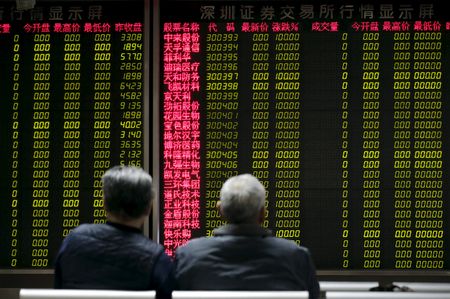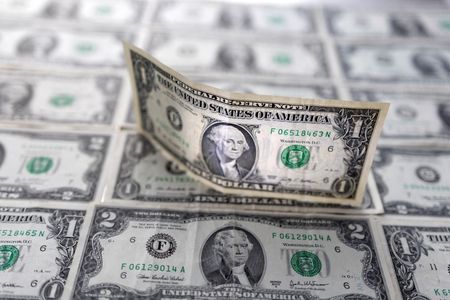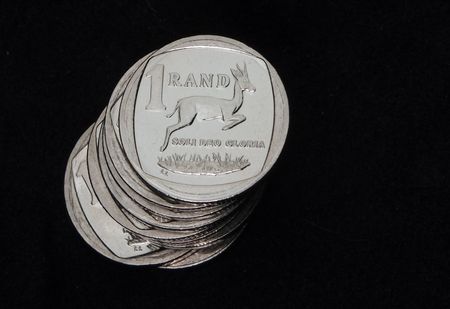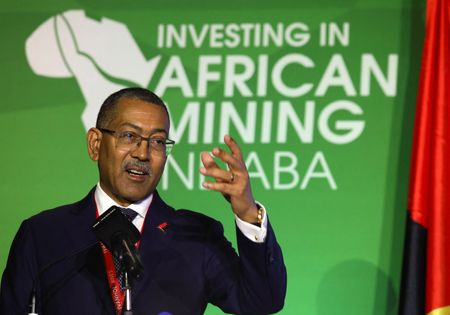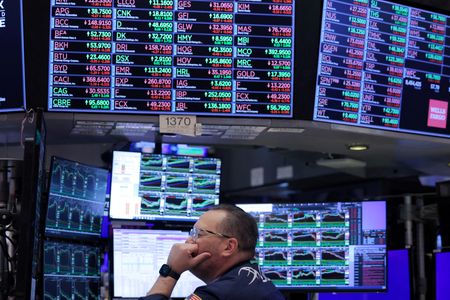By Amanda Cooper
LONDON (Reuters) -Global stocks got a boost on Thursday from a slew of upbeat earnings that helped counter some of the gloom on Wall Street over a lacklustre showing from tech megacaps, while oil prices surged following U.S. sanctions against Russia.
Oil surged 3% after the U.S. imposed sanctions on major Russian companies Rosneft and Lukoil over the Ukraine war.
European equities shook off overnight weakness in Asia and the U.S. as a clutch of positive earnings boosted domestic indexes, leaving the STOXX 600 up 0.3% on the day.
However, MSCI’s All-World index drifted into negative territory, heading for its third consecutive daily decline.
Chinese stocks fell as much as 1.1% after sources said the White House is considering a plan to curb an array of software-powered exports to China to retaliate against Beijing’s latest round of rare earth export restrictions.
“With no fresh macro data to anchor sentiment, investors are leaning defensive while Trump’s Asia visit (next week) stirs geopolitical nerves,” said Charu Chanana, chief investment strategist at Saxo Bank in Singapore.
“The chatter around U.S. software export curbs to China has hit tech sentiment right where it hurts, and renewed sanctions on Russia are a reminder that geopolitical risks aren’t going away either.”
POSITIVE EARNINGS SURPRISES
Global equity markets are easing off record highs as corporate earnings season kicks off. While there has been some disappointment over results or outlooks from megacaps, most companies so far have beaten analysts’ estimates.
Futures on the S&P 500 and the Nasdaq were up 0.1-0.2%.
Tesla, the first of the so-called Magnificent 7 to report earnings, saw shares fall around 4% early on Thursday, after missing profit estimates, despite record third-quarter revenue.
But there was still plenty for tech bulls to get their teeth into. A report from the Wall Street Journal that the U.S. government is in talks with several quantum-computing companies to take stakes in exchange for federal funding saw shares in IonQ, Rigetti Computing and D-Wave Quantum jump more than 20%.
Oil rose 3% to $64.68 a barrel, after U.S. President Donald Trump on Wednesday imposed Ukraine-related sanctions for the first time in his second term. The same day, EU countries approved a 19th package of sanctions on Moscow that included a ban on Russian liquefied natural gas imports.
“When it comes to the sanctions, it’s a negative for the region,” said Kyle Rodda, senior market analyst at Capital.com in Melbourne. “Most Asian economies are net energy importers, and this just inhibits growth and is a marginal driver of inflation.”
Sources said privately-owned Reliance Industries – India’s largest buyer of Russian oil – plans to sharply cut those imports due to EU and U.S. sanctions, with other Indian refiners likely to make massive reductions as well.
DON’T UNDERESTIMATE LURE OF RATE CUTS
Helping to offset some of the angst over geopolitical flashpoints and trade tensions is the firm belief among investors that the Federal Reserve is on the verge of a rate-cutting spree. Markets show traders are banking on U.S. rates falling to 3% by June from 4% now.
“Never underestimate the lure of a Fed that’s cutting rates and also the magic words: ending QT,” IG chief market analyst Chris Beauchamp said, referring to the central bank’s quantitative tightening programme, under which it runs down its holdings of government bonds to help tighten credit conditions.
The dollar index, which tracks the U.S. currency against six others, was last up 0.1%. Since hitting a 3-1/2-year low in August, it has steadily edged higher, as investors have become more confident the Fed will act to protect the economy.
Gold, which is heading for its biggest weekly slide since May, was up 0.4% on the day at $4,110 an ounce. The price briefly veered towards the $4,000 mark overnight, as investors booked profits ahead of U.S. inflation data due this week.
(Additional reporting by Gregor Stuart Hunter in Singapore; Editing by Kim Coghill and Jacqueline Wong)

